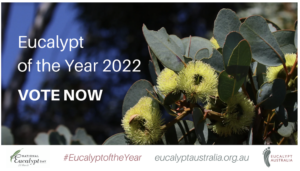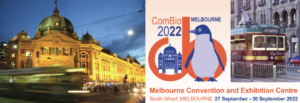- About
- Members
- Join
- Member log in
- Membership Renewal
- Member directory
- Life Members
- ASPS Life Member Professor Graham Farquhar
- ASPS Life Member Associate Professor Hendrik (Hank) Greenway
- ASPS Life Member Dr Marshall (Hal) D Hatch
- ASPS Life Member Dr Paul E Kriedmann
- ASPS Life Member Dr Mervyn Ludlow
- ASPS Life Member Emeritus Professor Rana Munns
- ASPS Life Member Conjoint Professor Christina E Offler
- ASPS Life Member Professor (Charles) Barry Osmond
- ASPS Life Member Emeritus Professor John W Patrick
- ASPS Life Member Dr Joe Wiskich
- Corresponding Members
- Elected Fellows
- Events
- Awards & Funding
- Employment
- Publications
- Research
- Teaching
- Menu
Phytogen February edition
28 February 2022
Hello ASPS members,
Phytogen February edition can be found HERE.
Phytogen February 2022 – Awards, Pasture and Trees
25 February 2022
Welcome to Phytogen for February 2021. In this issue:
-
-
-
ASPS Awards closing dates in March 2022, Education and Outreach closes in April 2022
-
R.N. Robertson Travelling Fellowship
-
Jan Anderson Award and Education and Outreach Award
-
AW Howard Memorial Trust Grants and Awards
-
Upcoming events
Voting closes 20th March 2022
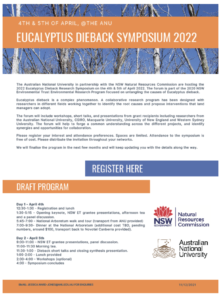
-
Paper to read – the Global Plant Council has lots to read including this article about trees.
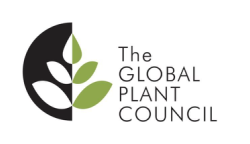
-
ASPS Society awards are Open:
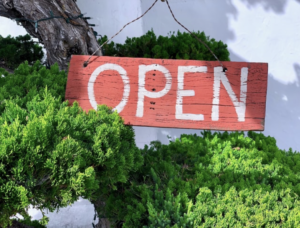 The closing date for the 2022 Peter Goldacre award is March 28th 2022 Click: Details.
The closing date for the 2022 Peter Goldacre award is March 28th 2022 Click: Details.The closing date for the 2022 Jan Anderson 2022 award will be March 28th 2022 Click: Details
Applications for the 2022 RN Robertson Fellowship will close 25 March 2022. To be eligible for this fellowship round the planned work must take place in 2022 Click: Details
Applications for the 2022 ASPS Education and Outreach Award are now open. The closing date for the 2022 award is April 16th 2022. Click: Details
Here are reports from last years award winners
R.N. Robertson Travelling Fellowship
Xiaoyang Wei, University of Newcastle
After 3 years of my HDR candidature at the University of Newcastle as a China Scholarship Council student, I returned to China in January 2020 for a two-week holiday to visit my parents who live near Wuhan in Hubei Province. As we all know now, I unwittingly flew into the disaster of the Covid-19 pandemic. Due to the initial lockdown in China, and then the border closures and Australian travel restrictions, I have been stuck in China since then, unable to return to Newcastle. Because of the Covid-19 breakout, all the academic institutes and Universities in China applied tight controls to address the challenge from Covid-19. Consequently, I had no access to any laboratory to conduct my PhD research. Luckily, quick and decisive actions were taken by Chinese government, and the pandemic was totally under control in March and life in China, particularly in Wuhan, gradually came back to normal after a two month-long nation-wide lockdown.
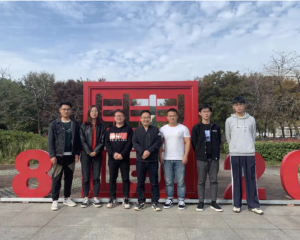
Figure 1. Photo with Dr Huang and his students at HZAU in Wuhan. From left to right, Changjin Liu, Jianuo Xu, Mu Xiong, Dr Yuan Huang, myself, Xiangshuang Wu and Jiangfeng Liu.
In July 2020, university campuses in China gradually reopened, which provided me a chance to work as a visiting scholar in a biological laboratory. Dr Lu Wang at The University of Newcastle introduced me to Dr Yuan Huang from the Huazhong Agricultural University (HZAU) in Wuhan, China. Dr Huang had previously worked as a visiting scholar in Professor Sergey Shabala’s lab at the University of Tasmania for one year (2017-2018) and now is an associate professor at HZAU. A major focus of his lab’s work is on vascular reconnection mechanisms in grafted cucurbit species. With support from the Core Facilities and Service Centre of the College of Horticulture & Forestry Science of HZAU, his lab has access to a full set of facilities for cell biology research, such as a several Leica fluorescence microscopes, vibratome, freezing microtome, ultra-thin semiautomatic microtome, etc. Access to Dr Huang’s lab enabled me to continue my PhD research overseas, and this was possible, to a large degree, because I received an R.N. Robertson Travelling Fellowship from the Australian Society of Plant Scientists (ASPS). This assisted with research costs, and allowed me to continue and then complete my PhD project in Dr Hunag’s laboratory at HZAU in Wuhan. Working at HZAU has given me an opportunity to gain new experiences in using different facilities particularly in handling with fluorescent microscopes and microtomes, which not only enriched my skills but also broadened my insight in plant cell biology research. However, working with Dr Huang’s group at HZAU has also allowed me to transfer many of the skills that I learned while at Newcastle to colleagues in China.
At HZAU, my PhD research mainly involved in investigating the fine-scale spatial relations between the wall ingrowth deposition in phloem parenchyma (PP) transfer cells (TCs) and other types of phloem cells in leaf minor veins in Arabidopsis. Confocal imaging of Vibratome cross sections and orthogonal reconstruction of minor veins was used to survey the leaves of the Col-0 accession, and also in the transgenic lines pAtSWEET11::AtSWEET11-GFP and pAtSUC2::AtSTP9-GFP which mark the PP and companion cells (CC) respectively. This analysis revealed, unexpectedly, that wall ingrowth deposition was more abundant in PP TCs positioned abaxially in the phloem compared to those positioned adaxially, implying differing contributions to phloem loading across minor veins within the leaf. This arrangement would, however, match recent studies in maize which have suggested that phloem loading occurs more from the lower side of the vascular bundle. Wall ingrowths in PP TCs were initiated exclusively at the interface adjacent to sieve elements (SEs), and the deposition of wall ingrowths adjacent to SEs was more abundant than that seen along PP TC/ CC interfaces in mature minor veins. Furthermore, only PP cells that were adjacent to SEs had wall ingrowths. As AtSWEET11-GFP levels were significantly higher in PP TCs with wall ingrowths, compared to PP cells without these structures, this further supports the role of wall ingrowths in facilitating phloem loading. These results constitute a major section of Chapter 3 of my thesis (submitted December 2021) and the work is now being prepared for publication.
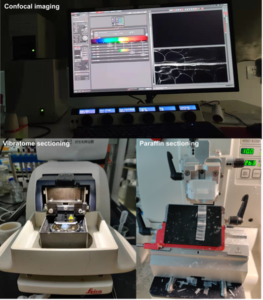
Figure 2. Confocal imaging and section preparations.
I have also conducted bioinformatics analysis using recently published single cell RNA-seq datasets and unpublished RNA-seq datasets from our Newcastle group, and then generated a list of candidate genes that are potentially involved in wall ingrowth deposition. A role for a sub-set of these genes in PP TC development was then assessed using relevant T-DNA insertional mutants. It is worth mentioning that seed lines for all tested T-DNA insertional mutants were obtained from the Arabidopsis stock centre in China called ‘AraShare’, which saved me considerable time in getting access to T-DNA lines, rather than sourcing them from ABRC. Results from this bioinformatics study which I completed while at HZAU has become Chapter 5 of my thesis.
I give my sincere acknowledgements and thanks to the ASPS for funding my project and I am grateful to the legacy of Professor R.N. Robertson for this opportunity. In a large part, this Fellowship allowed me to continue my PhD research while exiled in China. Many thanks to Dr Yuan Huang and all the students in his lab for their help and friendship at HZAU.
Jan Anderson 2021
Kim Johnson, La Trobe University
I almost didn’t apply for the Jan Anderson Award in 2021. Melbourne had experienced 6-months worth of lock-downs in 2020, home schooling had managed to destroy any semblance of work-life balance and I hadn’t had time to reflect on my academic achievements. With encouragement from mentor and collaborator Professor Tony Bacic, I took stock and realised that, by maintaining strong relationships (remotely!) with my research team, national and international collaborators, we had made significant progress in understanding the role of a group of plant cell wall proteins called hydroxyproline-rich glycoproteins, or HRGPs. I have been fascinated with wall (glyco)proteins for most of my career and have sought to understand how they play such important multifunctional roles in cell wall structure, wall integrity sensing and signalling during development and in response to stress. It is a privilege to work with people who share your scientific passion and to have the recognition of ASPS for these achievements was a real honour. I was delighted to be able to accept the award in person in Melbourne and felt the amazing support of the ASPS community linking in. The Jan Anderson award is a positive way for the society to show its commitment to improving equity, diversity and inclusion now and into the future.
Education and Outreach 2021
Kim Johnson and Monika Doblin, La Trobe University
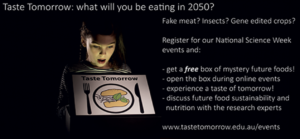
What will you be eating in 2050 when the world’s population reaches 10 billion? Fake meat? Insects? Gene-edited crops?
These were the types of questions we posed to students, teachers and the public during ‘A taste of tomorrow’, a series of education and outreach activities held in August 2020 hosted by La Trobe University for National Science Week. Activities included live online events with audience participation through polls and Q&A, a ‘future food box’, social media videos, and a website providing educational resources (https://www.tastetomorrow.edu.au).
The main aims of the project were to show that sustainable agriculture and nutrition are essential goals of human endeavour and their delivery is complex, that there are multiple stakeholders, no single correct policy and there is a need for compromise. Involvement of researchers from a range of disciplines aimed to show that science is a human endeavour, scientists are approachable and everyday people just like the audience, and learning about plants and animals is fun for its own sake.
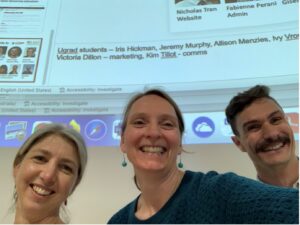
To raise awareness of the events, the La Trobe communications team posted fourteen videos, articles and profiles of researchers and students within the areas of biology, ecology, nutrition, physiology and agronomy, that were viewed over 15,000 times. A website was established to provide authenticity and community resources. The website was the point of contact for attendee registrations and supporting information such as future food ‘fact files’, blogs written by La Trobe students that include researcher interviews, recipes, experiments and school activities.
Kim Johnson and Monika Doblin, La Trobe University, Mike Haydon, University of Melbourne.
An important part of our events was a free mystery box of ‘future foods’ containing alternative food snacks delivered in advance to registrants. This engaged a wide variety of audiences with 1,000 boxes sent all over Australia. The boxes were particularly popular with teachers who could see the attraction for engaging students and using future food as a talking point for many areas of the curriculum. Three events were held during Science Week (15-23 Aug) and a launch event on the 5 August, attended by approx. 3000 people. Each involved 5-6 panellists from different disciplines (agriculture research, ecology, psychology, nutrition, sports, farming), and an MC who took the audience through a series of hypothetical future scenarios and food tastings. Feedback from the project showed that the events led to changing attitudes about food and sustainability and the importance of research to our future food security.
We sincerely thank ASPS for recognising our efforts to innovatively engage with the next generation of Australian researchers to raise awareness of the necessity to undertake multi-disciplinary research to solve complex societal issues such as meeting the nutritional requirements of the world’s growing population.
Pasture research funding opportunities now on offer

A fresh suite of grants, awards and scholarships are now on offer through the AW Howard Memorial Trust Inc.
The Trust’s various awards encourage and promote research and investigation in the fields of natural science and social science (including economics) which relate to the development, management and use of pastures.
Established in 1964 to commemorate the unique contribution of Amos Howard in the discovery and use of subterranean clover as a pasture plant in Australia, the Trust twice a year seeks grant applications from the research and academic community.
Applications are currently being sought for AW Howard Memorial Trust Early-Career Research Grants, Grants-In-Aid, Honours and Masters Scholarships, Study Awards, and Pastoral Industry Extension Awards:
-
-
- Early-Career Research Grants support research activities that improve the development, management and use of pastures. Grants are limited to $15,000 each.
- Grants-In-Aid, limited to $5000 each, are awarded to projects that: commemorate important contributions to pastoral sciences or industry; distribute scientific innovations to develop pasture use within Australia’s regions; invite prominent overseas pasture scientists to Australia to deliver keynote addresses at relevant conferences or visit regional scientists and community groups involved in pastoral industries; or need essential equipment for pastoral scientific research and development.
-
- Honours and Masters Scholarships are for projects that facilitate pasture research. Each scholarship offers a stipend of $5000 and operating expenses of $3000. Eligible recipients must be intending to commence approved Honours or Masters tertiary studies with any Australian university.
- Study Awards of up to $5000 are awarded to scientists to undertake overseas study tours or participate in national or international conferences. Tours and conferences must be related to pasture research and within the aims of the Trust.
- The Pastoral Industry Extension Study Awards, worth up to $20,000 each, aim to support study tours that examine successful grazing systems and practices and have the potential to benefit Australian pastoral industries and rural communities.
-
Applications for all the afore mentioned awards close on March 31.
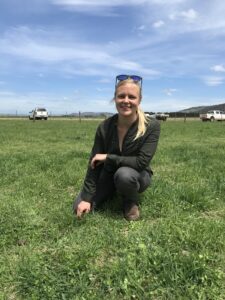
Former Early-Career Research Grant recipient Dr Beth Penrose strongly encourages others to apply for the funding on offer.
“The funds received through the Trust allow recipients to test their research ideas, build grant track records, be the foundation for larger projects, and help farmers at the same time,” said Dr Penrose, who is a Lecturer in Pasture Science at the University of Tasmania.
Dr Penrose used her grant, awarded in 2020, to investigate the effect of soil nutrients on nodulation of white clover and the status of the white clover seed bank of Tasmanian dairy pastures.
The Grant enabled Dr Penrose to engage Honours student Will Coad who worked closely with farmers during the investigation and has since found employment as a pasture agronomist in Tasmania.
Former Early-Career Research Grant recipient Dr Beth Penrose. Photo: Lesley Irvine.
Originally from the United Kingdom, Dr Penrose said attracting funding for research without an Australian funding record was difficult, so the support provided through the Howard Trust had been invaluable.
“It allowed me to undertake preliminary research and has been the catalyst for other pasture-related grants.
“It is fantastic that the Howard Trust is focused on pasture-related studies as there aren’t many funding opportunities focused just on pasture.”
The not-for-profit AW Howard Memorial Trust has awarded more than 400 grants of various descriptions since it was established in 1964 by the then Australian Institute of Agricultural Science (now Ag Institute Australia) through donations from benefactors.
The Trust is managed by a committee drawn from Ag Institute Australia, The Australian
Agricultural and Resource Economics Society, the University of Adelaide, the South
Australian Research and Development Institute which is a division of the SA Department of Primary Industries and Regions (PIRSA) and scientists experienced in crops and pastures including tropical pastures.
Application forms are available on the Trust’s website, https://bit.ly/3f3Pxkw. More information is available via the Trust’s executive officer, email howard.trust@sa.gov.au.
Upcoming events
Please login and check your ASPS membership is up to date. Encourage your colleagues and students to join ASPS.
Tweet to @asps_ozplants your news and upcoming events.
-
ASPS-sponsored conference IPMB2022
07 February 2022
Dear ASPS members,
Many of you will be aware of the concerns raised on social media regarding diversity, equity and inclusion at the ASPS-sponsored conference IPMB2022. We apologise for the hurt caused by how this was initially handled. ASPS condemns bullying, disrespectful and discriminatory behaviour and we consider it to be important that ASPS voices our concerns and publicly addresses the concerns of the community. For the past week, ASPS has been actively working with the IPMB board, the ASPB and The Global Plant Council to address the issues raised surrounding IPMB2022 and will continue to do so. We welcome input from our members.
Our public apology letter and commitment to using this opportunity for positive change is available here: https://www.asps.org.au/a-letter-of-apology-and-commitment-to-building-a-better-plant-science-community.
ASPS awards open and 2022 conferences
02 February 2022
Dear ASPS Members,
Welcome to 2022. We had a surprisingly active year last year considering the difficult circumstances. The ASPS hybrid meeting and Science Week activities were the highlights. Fingers-crossed that the Covid clouds are lifting and that our lives will not be quite so hectic in 2022 and that more interactions are possible.
I want to emphasise two announcements that appear in the latest Phytogen newsletter sent to you all today (https://www.asps.org.au/archives/7828).
ASPS Awards for 2022: We encourage applications for our annual awards. These include the Goldacre Medal, the Jan Anderson Award, the Robertson Travelling Fellowship and Education and Outreach Award. Deadlines are 28 March and details are available in the Phytogen.
Meetings and Conferences for 2022: We are in for a treat this year because two exciting meetings are being organised and both feature a stellar line up of speakers.
- ComBIO 2022 (Melbourne, 27-20 September 2022) includes, among many others, a Plenary Address from Jennifer Doudna, the Nobel Laureate for her work on gene editing. ComBIO is a combined meeting organised by several societies involved in biological sciences. Details at https://combio.org.au/combio2022/information.html.
- 13th International Congress of Plant Molecular Biology (Cairns, 23-27 October 2022) will have 84 sessions with some wonderful speakers including Claudia Köhler, Caixia Gao, Pamela Ronald, Keiko Torii, Cyril Zipfel, David Baulcombe. Details here https://ipmb2022.org/ and see poster attached.
Importantly, student members of ASPS can apply for funding to attend these meetings and details will be released soon. Student poster prizes will also be awarded.
The organising teams assure me that every effort will be made for these meetings to go ahead as planned. So put the dates in your diary and register your interest to receive regular updates.
Thanks, Peter
Dr Peter R Ryan
President, Australian Society of Plant Scientists
Honorary Fellow, CSIRO Agriculture and Food
PO Box 1700
Canberra ACT 2601, Australia
Email: Peter.Ryan@csiro.au
Mob: 0468671565
Recent Posts
Tags
Archives
- June 2025
- May 2025
- April 2025
- March 2025
- February 2025
- January 2025
- December 2024
- November 2024
- October 2024
- September 2024
- August 2024
- July 2024
- June 2024
- May 2024
- April 2024
- February 2024
- January 2024
- November 2023
- October 2023
- September 2023
- August 2023
- July 2023
- June 2023
- May 2023
- April 2023
- March 2023
- February 2023
- December 2022
- November 2022
- October 2022
- September 2022
- August 2022
- July 2022
- June 2022
- May 2022
- April 2022
- March 2022
- February 2022
- January 2022
- December 2021
- November 2021
- October 2021
- September 2021
- August 2021
- July 2021
- June 2021
- April 2021
- March 2021
- February 2021
- January 2021
- December 2020
- November 2020
- October 2020
- September 2020
- August 2020
- July 2020
- June 2020
- May 2020
- April 2020
- March 2020
- February 2020
- January 2020
- December 2019
- November 2019
- October 2019
- September 2019
- August 2019
- July 2019
- June 2019
- May 2019
- April 2019
- March 2019
- February 2019
- January 2019
- December 2018
- November 2018
- October 2018
- September 2018
- August 2018
- July 2018
- June 2018
- May 2018
- April 2018
- March 2018
- February 2018
- January 2018
- December 2017
- November 2017
- October 2017
- September 2017
- August 2017
- July 2017
- June 2017
- May 2017
- April 2017
- March 2017
- February 2017
- January 2017
- December 2016
- November 2016
- October 2016
- September 2016
- August 2016
- July 2016
- June 2016
- May 2016
- April 2016
- March 2016
- February 2016
- January 2016
- December 2015
- November 2015
- October 2015
- September 2015
- August 2015
- July 2015
- June 2015
- May 2015
- April 2015
- March 2015
- February 2015
- January 2015
- December 2014
- November 2014
- October 2014
- September 2014
- August 2014
- July 2014
- June 2014
Copyright 2017 Australian Society of Plant Scientists Disclaimer & Privacy
Website by Michael Major Media


